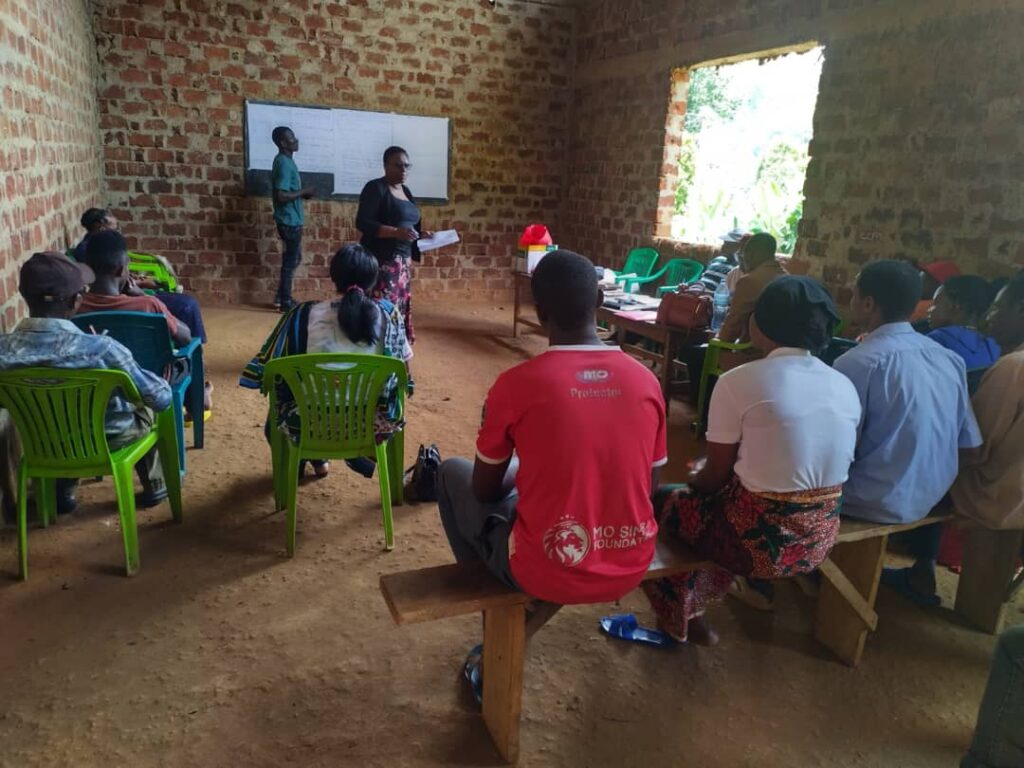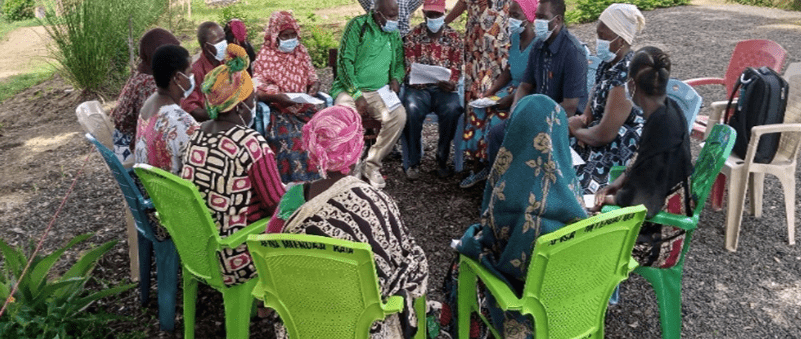Strengthening healthcare services—and the availability of those services—to address and end GBV
By Dr. Stella Mwita, WI-HER Technical Advisor, Africa

According to the global database by the UN Women in Tanzania, lifetime physical and/or sexual intimate partner violence is 46.2 %, physical and/or sexual intimate partner violence in the last 12 months is 29.6 %, the child marriage rate is 30.5 %, and female genital mutilation/cutting is 10 %. We still have much to do to change perpetrators’ attitudes toward gender-based violence (GBV). Female genital mutilation, which often originates as a cultural step in a woman’s life, is even more brutal to address and may eventually lead to other complications during labor, such as fistula and even obstructed labor. GBV services should be timely and available to population groups, including various points of care from the police and the judiciary to health services. The first point is usually the police, who give a specific form to take to the health services, which may add on a point to pass through before receiving the health services; however, it is important to address the perpetrators. Police and judiciary systems have established gender desks in most police stations, and a lot of effort is being done to educate the communities on reporting GBV cases, including in most primary and secondary schools, so that immediate reporting of cases can be done.

Furthermore, access to health services within manageable distances is key for communities. In Tanzania, the first point of health service is the dispensary, whose catchment area is usually within five kilometers and expectations of attending to at least 5,000 people. Reporting cases of GBV is a challenge in our society as people may not voluntarily report GBV cases due to fear of abuse and geographical, traditional, and cultural dynamics that may hinder reporting of GBV by the victims. Community awareness is promoted through community sensitization and media promotion. Additionally, health services should be more receptive to the victims by establishing sensitivity of the health workers in identifying even the non-revealing or un-declaring GBV cases. Related to GBV is the sexual abuse of children, both male and female, and several organizations are working exclusively to address those efforts led by the Ministry of Community Development, Gender, Women and Special Groups; Ministry of Education, Ministry of the Judiciary System, Ministry of Health, and the media bodies campaigns led by the Ministry of Information.
In Tanzania, through multiple USAID funded projects, WI-HER uses their iDARE methodology to support local civil society organizations (CSOs) and communities to identify gaps in GBV prevention, care, and treatment. WI-HER supports stakeholders to make multi-sectoral linkages and identify opportunities and available local resources to close gaps. Joint efforts by all stakeholders are key to eliminating GBV, and these efforts are:
- Referral strengthening to the respective authority, including police, gender desk, hospital, and legal authorities (e.g. court).
- Use of MTAKUWA: MTAKUWA is a committee involving legal, social welfare, police, CSOs, health care providers, and gender desk, etc.
- Experience sharing: including testimony from the victims and discussing the impacts of GBV depending on your audience (if you are at school with school children, at health facilities, in the community, etc.)
- Awareness-raising activities: Inform the community of the availability of post-GBV service
- Educate the community on GBV/violence against children (VAC) through community platforms
- Risk mitigation measures
- Trained women created grassroots awareness among community members; their voices are now powerful in reporting GBV anonymously through a toll-free number 116 and escorted referral of victims to access post-GBV care and legal facilities.
- Gender mainstreaming and integration assessment completed by WI-HER extend the lens of CSOs on the need for advocacy of gender policy and integration to fight against GBV.
In building awareness of GBV, we can act to end it.